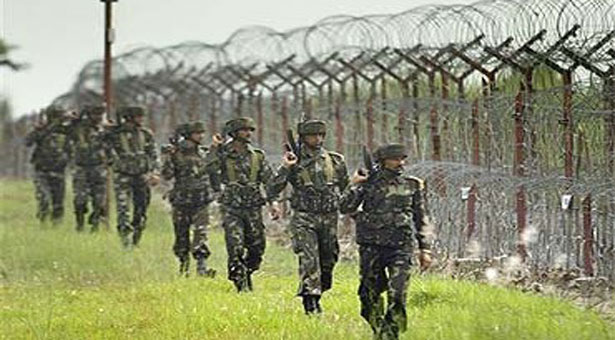Five More Civilians Killed, 18000 Run For Lives as India And Pakistan Continue Border Hostilities
India Pakistan continue to trade fire across the Line of Control, displacing thousands and claiming

NEW DELHI: Five more civilians were killed in cross-border firing along the Line of Control on Wednesday, bringing the total number of people killed since fighting erupted on Monday to nine Pakistani and eight Indian civilians. At least 18,000 civilians on both sides have fled their homes, seeking shelter from what both governments claimed was “unprovoked firing” from the other side.
Despite this both Islamabad and New Delhi continue with the firing, with the government here hardening its position. In a clear threat to the neighbouring country, Defence Minister Arun Jaitley said, “If Pakistan persists with this adventurism, our forces will make cost of this adventurism unaffordable for it.”
“Pakistan should stop this unprovoked firing and shelling if it wants peace on the border,” the Defence Minister added.
Further, India’s National Security Ajit Doval held a high-level meeting that included home secretary Anil Goswami, Intelligence Bureau chief Syed Ibrahim and BSF representatives, following a meeting between the three service chiefs and Arun Jaitley.
Pakistan, in turn, has accused India for the provocation and maintained that it is “exercising utmost restraint.” National Security Adviser Sartaj Aziz said, “Unfortunately, all our efforts to secure peace and tranquillity on the Line of Control and the Working Boundary have elicited no cooperation from the Indian side.”
Pakistan’s National Security Committee is reportedly set to meet to discuss the crisis on Friday, and set to include the top military leadership, Sartaj Aziz, Minister for Defence Khawaja Asif, Interior Minister Chaudhry Nisar Ali Khan, Finance Minister Ishaq Dar and Information Minister Pervez Rashid.
As both India and Pakistan continued to blame the other for “unprovoked firing” 18,000 civilians fled their homes, seeking shelter in schools and relief camps. After a calm September, firing resumed on October 1 following an August that was witness to heavy exchanges of gunfire and shelling between border posts and left at least six people dead. This round of firing coincides with the festival of Eid, with the Pakistan Foreign Ministry statement saying that India’s actions were “in complete disregard” of the festivities. "It is deeply saddening that Indian Security Forces’ act of aggression deprived a number of families from celebrating Eid," the statement said.
Eid, however, follows a devastating flood in Kashmir that left hundreds dead and caused irreparable damage. The resumption in firing only added to the gloomy atmosphere, leading to thousands fleeing their homes in the villages along the disputed border.
The firing itself follows escalated tensions between the two nuclear neighbours ever since the cancellation of secretary-level talks over Pakistan’s decision to meet Kashmiri separatist leaders in August. The talks had signalled the prospect of renewed ties between the two countries, after Indian Prime Minister Narendra Modi invited Pakistani counterpart Nawaz Sharif to attend his swearing-in ceremony, with the two leaders meeting in New Delhi on the same occasion.
Speaking at the United Nations last month, Sharif said that India’s decision to cancel the talks had resulted in a “missed opportunity.” PM Modi, speaking at the UN the next day, responded saying that India was not opposed to talks, but would not participate “in the shadow of terror” and that it was upto Pakistan to “create a conducive atmosphere for talks.”
The recent firing is indication that that atmosphere is no where near normalcy with the India-Pakistan border live and hostile almost since the new government came to power in Delhi. The firing and the rhetoric have both intensified, although PM Modi said in a remark without context or explanation that it would be alright soon. It was not clear what he meant by this as he did not elaborate.
The window of opportunity for Prime Ministers Modi and Nawaz Sharif on the sidelines of the United Nations General Assembly was passed by both countries. A new opportunity will present itself at the Saarc summit in Nepal in mid November but it remains to be seen whether it will be utilised by the two countries to mend relations and move towards dialogue and peace. If the current confrontation continues and escalates, the possibility of a cancelled summit cannot be ruled out. This will not be the first time that hostile relations between India and Pakistan have held the South Asian region to ransom.



